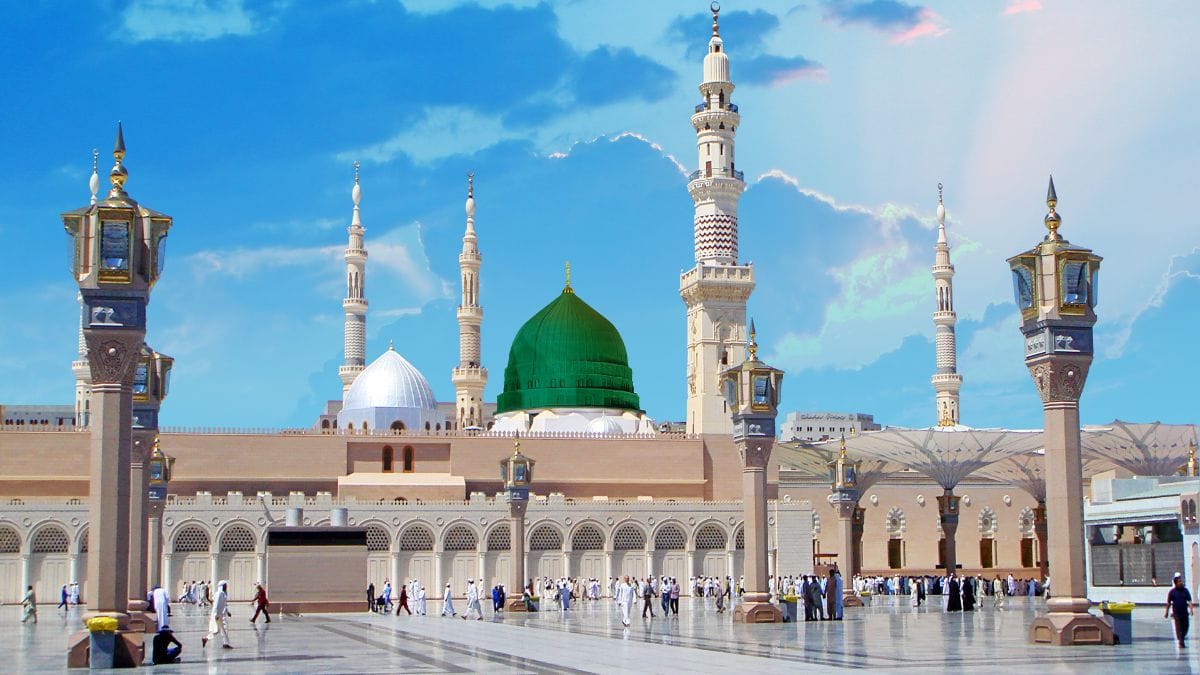Harmony in Madinah: Lessons for Malaysia (Continued)
The media in Malaysia holds a profound responsibility to promote peace and understanding, drawing lessons from historical contexts like Madinah. Here’s how the media can act as an agent of stability:

The Role of Media in Shaping Perception and Reality
While Madinah is often celebrated for its early contributions to the ideals of peace and coexistence, it has also witnessed profound turmoil. The assassinations of the caliphs Omar, Othman, and Ali are critical events that underscore the perils of political instability, revealing lessons that are still pertinent today.
In today’s interconnected world, media plays a pivotal role in either maintaining harmony or fueling conflicts. Unlike the past, where news spread slowly, modern media can quickly amplify unrest, potentially destabilizing nations if wielded irresponsibly.
Read More WF Stories

Conflict in Madinah: The Assassinations Unveiled
1. The Assassination of Caliph Omar (Umar ibn al-Khattab)
Omar ibn al-Khattab, the second caliph, was known for his fair and strong leadership. However, he was assassinated in 644 AD by a Persian slave named Abu Lulu'ah (PiruzNahavandi). The motives behind this act remain debated, but it is widely viewed as a personal vendetta. Omar’s assassination symbolized the vulnerability even strong leaders faced, sparking concerns about the stability and security of the Islamic state.
2. The Assassination of Caliph Othman (Uthman ibn Affan)
Othman ibn Affan, the third caliph, faced increasing dissent due to accusations of nepotism and mismanagement. In 656 AD, discontent culminated in a siege of his home by rebelling factions. After enduring weeks of blockade, Othman was eventually murdered by insurgents. His assassination marked a significant fracture within the Muslim community, leading to a period of civil strife known as the First Fitna.
3. The Assassination of Caliph Ali (Ali ibn Abi Talib)
Ali ibn Abi Talib, the fourth caliph, confronted his own set of challenges, including lingering tensions from Othman’s era. In 661 AD, Ali was assassinated by a Kharijite named Abdur-Rahman ibn Muljam while praying in the mosque of Kufa. The Kharijites, originally supporters of Ali, turned against him over political and religious disagreements. Ali’s death deepened the divisions and further destabilized the nascent Muslim community.
Lessons for Malaysians: The Importance of Political Stability
Malaysia, with its diverse tapestry of ethnicities and religions, can draw valuable insights from the turbulent history of Madinah. The voids left by the assassinations of these caliphs led to power struggles, sectarian conflicts, and social unrest. Ensuring political stability in Malaysia is crucial to prevent such outcomes. Here’s why:
1. Preservation of Peace and Order: Similar to Madinah, where internal conflicts interrupted societal harmony, instability in Malaysia could lead to unrest and violence. A stable political environment is essential for the safety and security of all citizens.2. Economic Stability: Political uncertainty can deter both local and foreign investors. Historical turmoil in Madinah disrupted trade and economic activities. Malaysia’s growth and development hinge on maintaining a stable and predictable political landscape.3. Social Cohesion: Madinah’s internal conflicts often pitted different factions against each other, exacerbating divisions and mistrust. In a diverse society like Malaysia, promoting political stability helps unite various ethnic and religious groups, fostering a sense of national unity.4. Effective Governance: The governance crises following the assassinations in Madinah highlight the necessity of strong, stable leadership. For Malaysia, effective governance rooted in political stability is essential for addressing the needs of the population and implementing beneficial policies.
Media as a Catalyst for Stability
The media in Malaysia holds a profound responsibility to promote peace and understanding, drawing lessons from historical contexts like Madinah. Here’s how the media can act as an agent of stability:
1. Balanced Reporting: By providing balanced and unbiased reporting, media outlets can prevent the escalation of conflicts and reduce misinformation. Responsible media practices are crucial to avoid sensationalism that could stoke tensions.2. Promoting Dialogue: Media platforms can encourage dialogue and understanding among different community groups. Highlighting stories of cooperation and peaceful coexistence can counteract narratives of division.3. Educational Role: The media can educate the public about the importance of political stability and the detrimental effects of political turbulence. Programs delving into historical lessons, such as those from Madinah, can provide context and insight.4. Accountability and Transparency: Investigative journalism plays a key role in holding political figures accountable, promoting good governance, and deterring corruption, which can lead to instability.
Learning from the Past to Build a Stable Future
The history of Madinah, with its tales of leadership and upheaval, serves as a powerful reminder of the importance of political stability. As Malaysians, reflecting on these lessons can help navigate the complexities of modern governance. A stable political environment, supported by responsible media practices, is crucial for maintaining peace, fostering economic growth, and promoting national unity. Only by learning from the past can we hope to build a more harmonious and resilient future.

